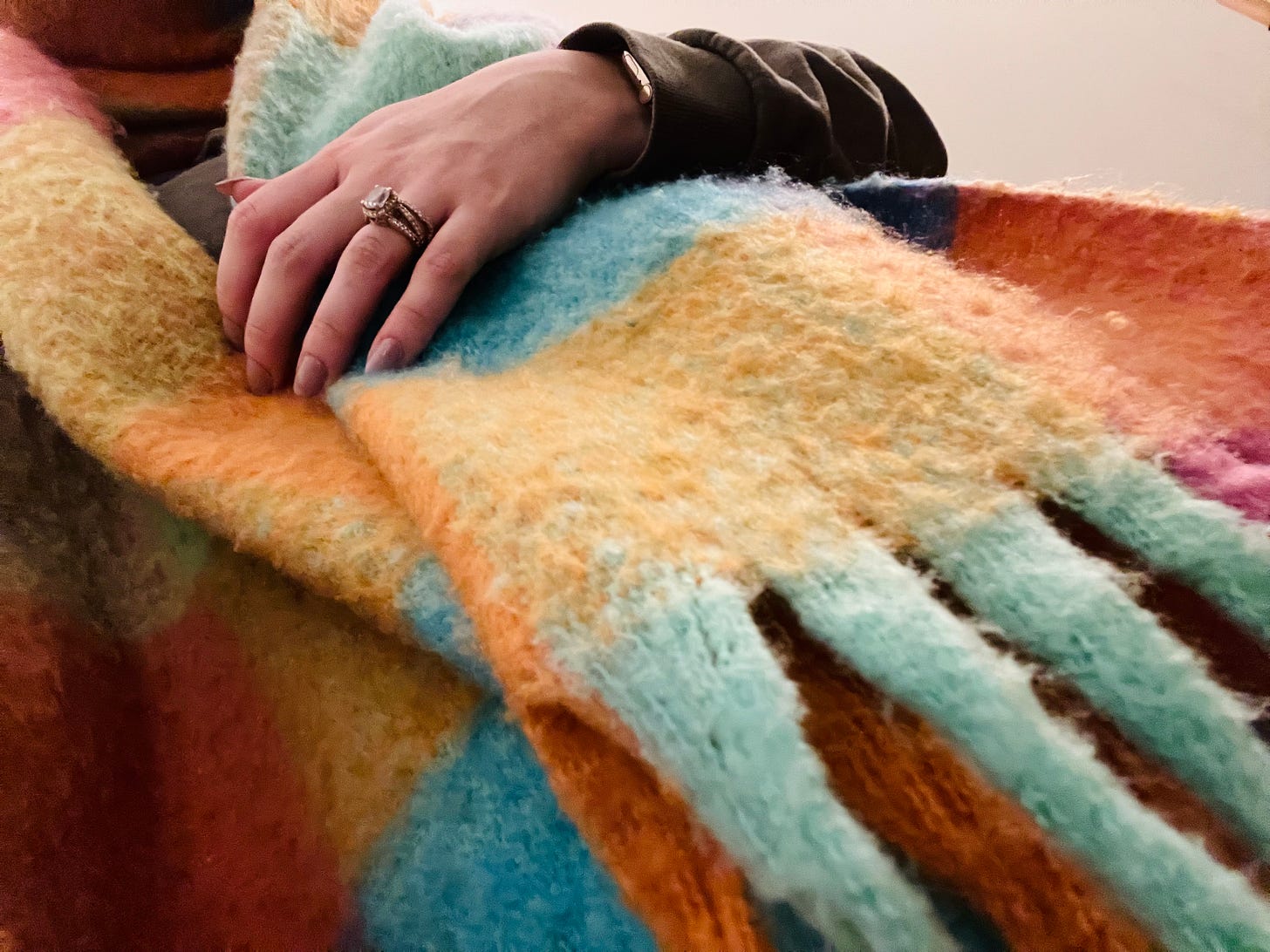Along with most other humans I’ve met, I like soft things. The fluffy fiber of my winter scarf. The squishy cheeks of an eight-month baby. The chewy center of a freshly baked chocolate chip cookie. The smooth velvet of my living room couch.
Softness is often a desirable physical trait — it signals that something is new and not worn, fresh and not outdated. There is nothing like putting on a brand new sweatshirt and basking in the buttery soft fleece inside. But that softness fades with every wash, until it’s no longer our softest sweatshirt, but just another in our pile of previously soft sweatshirts.
Softness is also associated with warmth and comfort, sweet flavors and satisfying bites, kindness and love. It’s the opposite of a frustratingly itchy sweater, stale bread, or a firm mattress.
I’ve been catching up on the Netflix show “Dead to Me,” which is about two women who become friends through their trauma (it’s a dark comedy series). Christina Applegate plays Jen Harding, a widowed mother and real estate agent in Laguna Beach who deals with a lot of pent up anger. Linda Cardellini plays Judy Hale, a sweet but slightly unstable hippie in an emotionally abusive relationship. Despite the hardship she’s faced, Judy always sees people with fresh eyes. In one scene, Jen describes her friend perfectly: “She sees the good in people, even if it's not there.”

I relate so much to Judy because she doesn’t let the bad in the world keep her from loving others fully. Maybe she trusts too easily and sometimes her naivete lands her in difficult situations, but her heart cares deeply. There’s just one part of Jen’s quote I disagree with — I do believe that everyone has good in them. I believe that God created us all in His image, therefore every human has beauty, purpose, and worth. Yes, sometimes it is very, very difficult to see. And I still struggle to see it in some people. But even those who have done horrible things are products of sin, trauma, and abuse. If God can forgive and heal me, no one is unredeemable.
The part I love most about Jen and Judy’s friendship is that they balance each other out. Judy’s softness melts Jen’s hard exterior enough to let love in. And without Jen’s reality checks, Judy would get into even worse situations.
Softness is not always seen as a desirable trait, but I have come to believe it’s one of the best things we can be. The world does everything it can to harden us. We start as soft, impressionable kids, but as we grow up, we experience the harsh realities of the world. People are mean. We don’t all get everything we want when we want it, but a few people do and that’s not fair. People suffer illness and pain. Our hearts get broken. Friends betray us and family abandons us. No matter how much we achieve, we don’t get that job or promotion. If we’re not careful, reality forms a patina of callousness on our hearts disguised as protection. We think it will guard us from pain, but pain in this lifetime is unavoidable, no matter how hard we try to be.
If we’re not careful, reality forms a patina of callousness on our hearts disguised as protection.
If pain is unavoidable, hardness doesn’t serve us. In fact, it often adds difficulty. It can keep us isolated and lonely, create dissension in our relationships, and prevent us from appreciating the beauty in others. In a spiritual context, softness is another word for gentleness, which is a fruit of the Spirit.
“But the fruit of the Spirit is love, joy, peace, forbearance, kindness, goodness, faithfulness, gentleness and self-control. Against such things there is no law.” - Galatians 5:22-23 (NIV)
Not only are we called to be gentle, or soft, but we can ask God for more whenever we feel we are lacking it. Furthermore, God has no laws against the fruit of the Spirit. That means being gentle with others and ourselves cannot be a sin. Imagine being gentle the next time you have a disagreement with a family member or friend. Instead of getting heated, namecalling, or slamming doors, a gentle approach might look like taking moments to breathe, calmly listening to the other person’s words, and using kind words to express your thoughts or perspective.
Now imagine being gentle with yourself the next time you begin to feel insecure or stressed. Instead of putting yourself down or pushing yourself too far, you might speak some positive affirmations or take a break to rest and recover.
When we are gentle, we are also less likely to sin in other ways. Being gentle during a disagreement helps us not to say something hurtful or give the silent treatment. Being gentle with ourselves might keep us from turning to unhealthy coping mechanisms like drinking alcohol or binge eating.
Ultimately, when we have soft hearts, we are more likely to get through to those who need love the most. If you’ve ever been on a subway train during rush hour, you know that two irritable commuters don’t usually produce a positive interaction. One bumps into the other and suddenly they are both yelling at each other and pointing fingers. But if one person remains soft, perhaps they offer an apology or give up their seat, the angry passenger is more likely to calm down. Small acts of gentleness remind a person that they matter, that even if they are having a bad day, they are worth being cared for.
So my prayer for you and I is that we stay soft. I pray that God gives us gentle hearts to see others and ourselves with more grace than criticism, to remain hopeful that God’s power to redeem is greater than any hard exterior.







Agreed! Being soft is actually a superpower and it's about learning discernment and knowing where your energy will be appreciated.